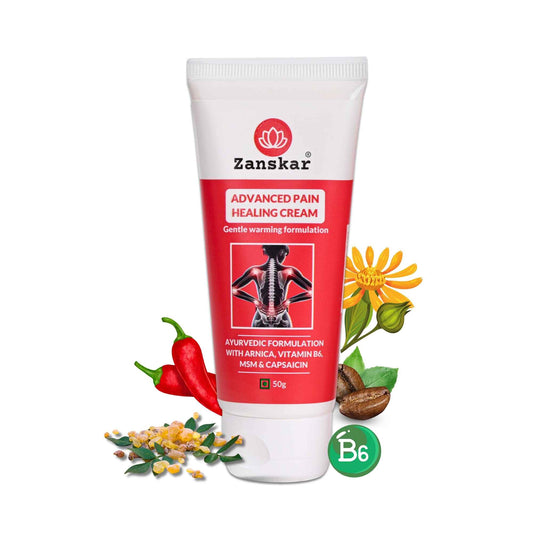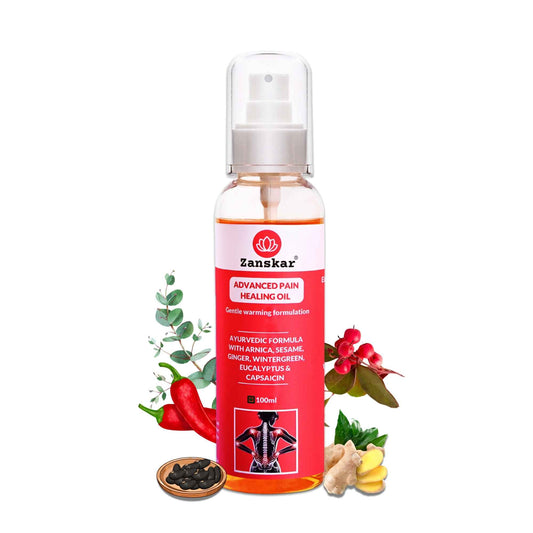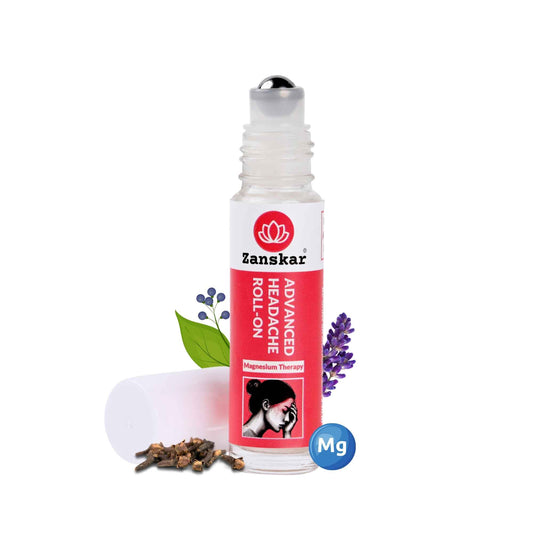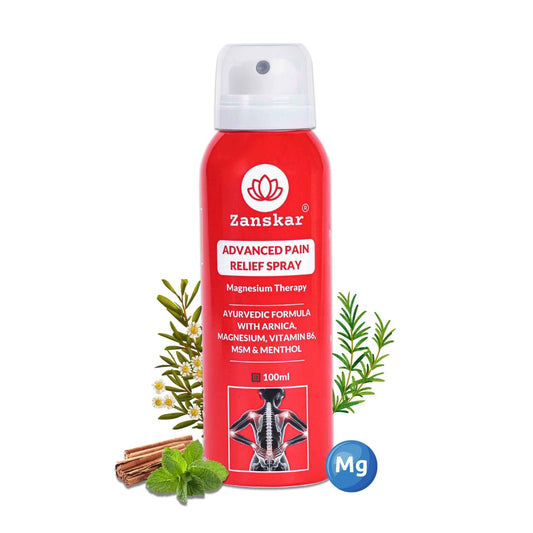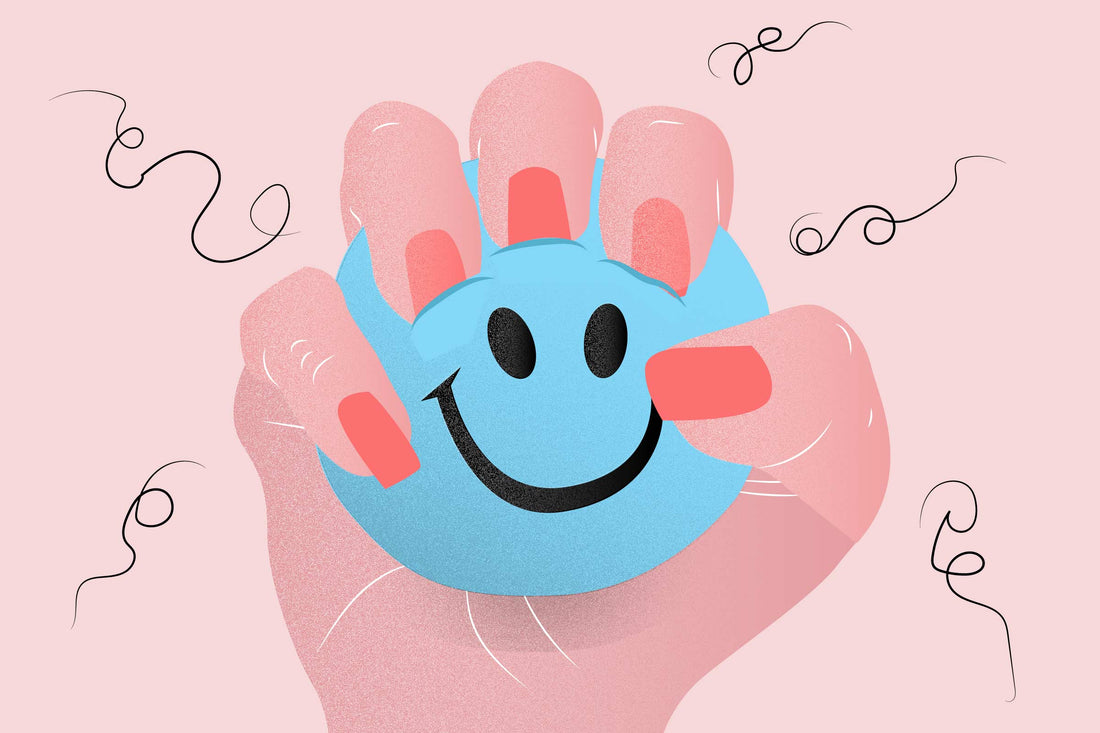
Can a Panic Attack Cause Muscle & Joint Pain?
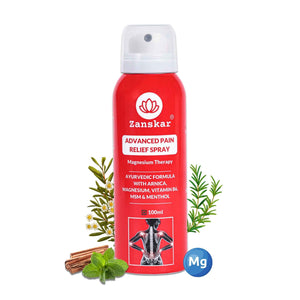
Life is full of stressful situations. You may feel stress over meeting a deadline, managing finances, or even something as simple as getting the kids out the door in the mornings (ok, maybe NOT so simple).
According to the Anxiety and Depression Association of America, “Seven out of ten adults say they experience stress or anxiety daily, and most say it interferes at least moderately with their lives.”
Stress has become such a part of daily life that many people don’t realize it’s a problem until symptoms become unbearable, and sometimes, irreversible.
How Does the Body Respond to Stress?
There is a direct link between stress and inflammation. Joint pain and sport-related injuries can be aggravated by increased stress levels. The body releases stress hormones like cortisol and adrenaline as part of the stress response which can cause muscle tightening and increased pain sensitivity.
These hormones tell our bodies to go into fight-or-flight mode, releasing pro-inflammatory molecules and causing inflammation. This reaction, also known as “stress response”, is your body’s way of keeping you safe from harm. Unfortunately—the body can’t always discern between a legitimate threat and the pressure of daily life. If the immune system is activated too long, it can cause chronic inflammation, leading to joint pain and damage.
When faced with danger, a chemical reaction occurs in your body which allows you to act quickly.
Any stressful situation—from narrowly avoiding a head-on collision to being stuck in a traffic jam to stress from office politics—can trigger this response causing the heart rate to increase, blood pressure to rise, and muscles to tighten.
What can stress do to your body?
- Muscle Aches: Muscle aches and joint pain can be caused by tension, as well as general poor health. Anxiety causes the muscles to tense up, which can lead to pain and stiffness in almost any area of the body. Constant stress and worry can also prevent the immune system from working properly, leading to decreased resistance to infection and disease. Infection increases inflammation in the body, which can cause a range of symptoms, including joint pain
- Muscle Weakness: Another common symptom of chronic anxiety is weakness in the muscles, most commonly experienced in the legs and sometimes the arms. During the fight or flight response, the body is preparing to take action against danger. One of the ways in which the body prepares for this action is to redirect blood flow to the areas most needed, including the legs, which are needed to run away from danger. Increased blood flow to the legs can make them feel weak, tingly or like jelly
- Headaches: Headaches and migraines are often caused by tension, particularly in the neck and shoulders. Teeth grinding, facial tension, poor posture and hyperventilation can also cause headaches and migraines. Sharp pain, a dull ache or a feeling of pressure around the head and eyes are common symptoms associated with anxiety. As anxiety can also upset the balance of hormones in the body, some women notice an increase in migraines, as they can be triggered by changes in hormones.
- Disruption in Sleep: Stress can also be a reason why you’re tossing and turning all night. A constant state of worrying puts your mind (and body) in a state of tension. The relationship between chronic pain and lack of sleep is very strong. Even worse, you may start to get stressed over the fact that you’re not sleeping — and so the cycle continues.
- Heightened Pain Perception: Stress is a known cause of flare-ups of symptoms of joint pain, fibromyalgia and other conditions because stress lowers your threshold for pain.
How to Reduce Stress-Related Joint Pain
We can’t exactly remove stress from our lives, but there are ways to ease symptoms.
- Identify triggers: Once you’ve identified them, try to find ways around them
- Eat well: Not only is a healthy diet essential in maintaining a healthy weight, certain foods can also help decrease pain and inflammation
- Stay active: Exercise plays an important role in both mental and physical health. Incorporate walking, yoga, or other activities into your daily routine
- Limit alcohol and caffeine: Alcohol and caffeine can intensify anxiety and joint pain. Stick to water when you can
- Use safe topical pain ointments: Stress often reduces your threshold for pain. In many cases, it is advisable to manage this pain by using topical pain relief ointments.
Learn More About Zanskar Health
If you have joint or muscle pain that makes it hard to move, Zanskar offers the most advanced full stack pain relief solutions for you.
Now available to purchase, Zanskar® Advanced Pain Care Products have a unique formulation of natural bioactive ingredients and provide lasting relief from muscle and joint discomfort that you can feel good about. Get your fix before stocks run out - buy now.
You can also gain access to therapeutic exercises and stretches for your condition by downloading the Zanskar Health physiotherapy mobile app. Additionally, you’ll have a personal care team to guide, support, and tailor our program to you, including behavioral and nutritional coaching.
Download our mobile app here 👉 download and track your exercise streak.
Medical Review: This article is written by Dr Nishtha Mittal (Senior Health Content Editor at Zanskar Health) and has been medically reviewed by the medical team at Zanskar Health. This article and its contents are provided for educational and informational purposes only and do not constitute medical advice or professional services specific to you or your medical condition.




